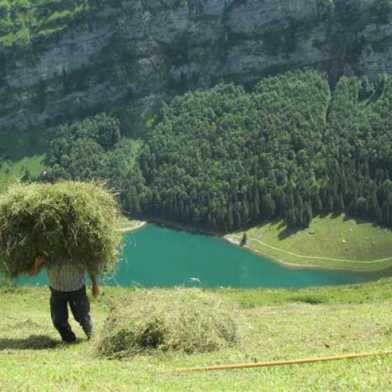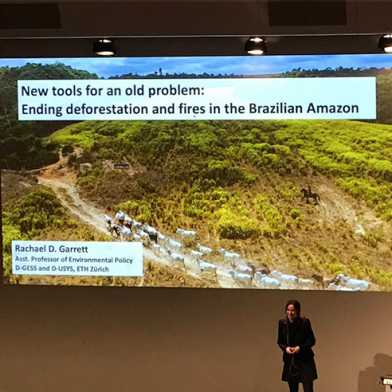ISTP News
All stories that have been tagged with Environmental sciences
The new mode of climate governance
Blog

(Re-post from ETH Zukunftsblog) The guiding principle for global climate policy is shifting from mistrust to collaboration, says Anthony Patt. Interestingly, nations' answer to the coronavirus can help to clarify how.
Who’s evaluating Swiss landscapes?
Blog

If beauty is in the eye of the beholder, how do you define a beautiful landscape? Machine learning algorithms can be helpful here, says Adrienne Grêt-Regamey. (Re-post from ETH Zukunftsblog)
Assessing Impacts on the Natural Resource Soil in Life Cycle Assessment: Methods for Compaction and Water Erosion
Publications

Soil systems are important environmental assets as they are the basis for food production and of great importance for the achievement of the Sustainable Development Goals. A recent paper by Thomas Sonderegger, in collaboration with ISTP Researchers Stephan Pfister and Prof. Stefanie Hellweg, deals with the limited available life cycle impact assessment methods for the natural resource soil. Their results indicate that a scenario without any conservation measures leads to substantial productivity losses.
New tools for an old problem: Ending deforestation and fires in the Brazilian Amazon
Highlights

Facts & not fiction. Cattle are still responsible for primary forest loss in the Brazilian Amazon. Professor Rachael Garrett’s recent inaugural lecture on deforestation - causes and necessary policy changes to combat proximity to a tipping point (of no return) - was a real tour de force.
Climate signals detected in global weather
Research

Searched for and found: climate researchers can now detect the fingerprint of global warming in daily weather observations at the global scale. They are thus amending a long-established paradigm: weather is not climate – but climate change can now be detected in daily weather. (Re-post from ETH News)
Call for a counterproposal to the pesticide initiatives
Media

The two popular initiatives on drinking water and a ban on pesticides are justified, but inflexible. Professor for Aquatic Chemistry at ETH Zurich Bernhard Wehrli calls for a counterproposal to tackle the issue. (Re-post from ETH News)